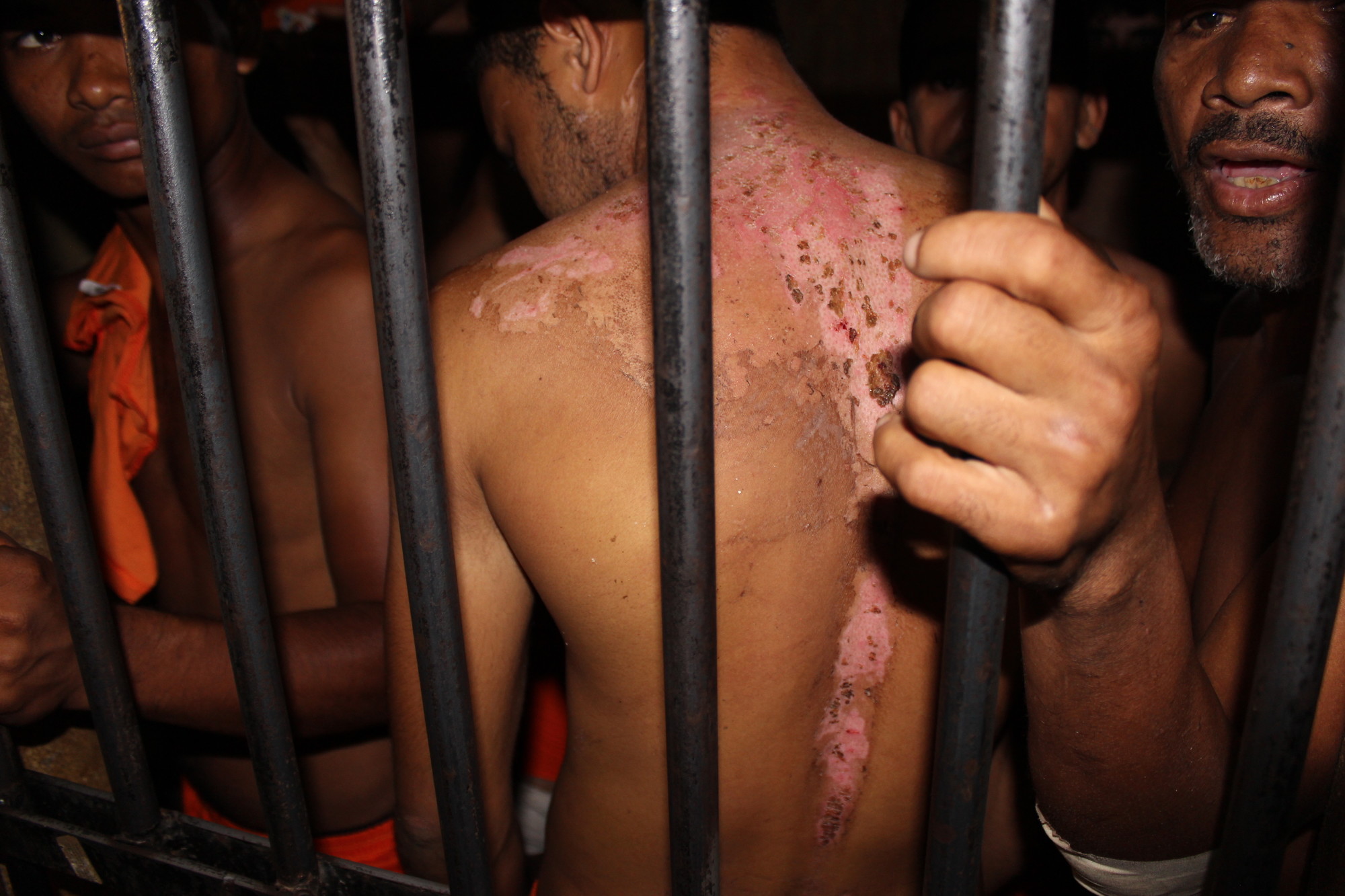Brazil is target of analysis by UN Committee Against Torture; understand what is at stake
Civil society organizations expose rights violations that have occurred in recent years and government says it will make a commitment to the issue
 A prisoner in the Pedrinhas Prison Complex shows burn marks on his back. According to the detainee, the injury was caused by hot water thrown by a police officer at the time he was arrested. São Luís (MA) – Brazil.
A prisoner in the Pedrinhas Prison Complex shows burn marks on his back. According to the detainee, the injury was caused by hot water thrown by a police officer at the time he was arrested. São Luís (MA) – Brazil.
This week, the United Nations Committee Against Torture is conducting a review of Brazil with regard to the measures adopted to combat the practice of torture in the country. The review process is carried out periodically for all countries that are signatories to the United Nations Convention Against Torture.
Formed by 10 independent experts, the Committee – based in Geneva, Switzerland – is responsible for monitoring the implementation of the Convention and reviewing reports from States Parties, and also for holding constructive dialogue with governments on issues related to the prevention of torture and treatment of victims.
During the review, the Committee analyzes the report submitted by the Brazilian government, as well as reports from civil society organizations and other independent sources. The purpose of the review is to identify areas where Brazil can improve in the combat and prevention of torture, and also to provide recommendations to help the country fully comply with its international obligations.
The Brazilian review will take place this Wednesday and Thursday and it can be watched on the UN channels.
Document from civil society
In a report sent to the evaluation process, five Brazilian civil society organizations noted that Brazil had set up its National System to Combat and Prevent Torture, led by the National Mechanism to Combat and Prevent Torture, in 2014. Although the Mechanism has gained traction since its creation, it was harshly attacked by the Bolsonaro government, even requiring a legal strategy in the Supreme Court to keep it functional. Another problem is the large backlog of work at this body, which is responsible for monitoring prisons, hospitals, therapeutic communities and other detention facilities.
The report also addresses the establishment of pre-trial custody hearings in the Brazilian court system, in 2015, as a measure to reduce the time people spend in prison before seeing a judge, thereby enabling the identification of mistreatment against detained people. In addition to demonstrating that little is done in cases of torture committed by government agents against prisoners, the organizations point out in the report that the COVID-19 pandemic posed challenges to these hearings. The possibility of holding virtual hearings was approved by the National Council of Justice, despite legislation that prohibited this format. The document presents the negative impacts of having virtual hearings, such as the inability to visibly detect torture. In addition, it highlights that most states in Brazil have not yet resumed in-person custody hearings, which could lead to violations of the rights of detainees.
UN Convention
Brazil has been a signatory to the United Nations Convention Against Torture since 1989 and its last report to the Committee Against Torture was submitted in 2017. Since then, the country has faced significant criticism and challenges with regard to police violence, torture in prisons and treatment of migrants and refugees.
The Committee Against Torture is an important mechanism for monitoring the United Nations Convention Against Torture and a key element in the global fight against torture. Brazil’s review is an important reminder that torture is a violation of human rights and that all countries must work together to combat and prevent it.
“Torture is an ongoing practice in various different places in the country and, in many cases, it is practiced by the State against citizens. It is essential for the UN to make it clear to the Brazilian State that there can be no such thing as full democracy with rights violations,” said the lawyer Carolina Diniz, coordinator of the program to Combat Institutional Violence at Conectas, who is accompanying the review.
New government
The Minister of Human Rights and Citizenship, Silvio Almeida, head of the Brazilian delegation at the UN Committee Against Torture in Geneva (Switzerland), made a commitment on behalf of the Brazilian State to combat torture and other human rights violations and to respect the memory of victims of the military dictatorship. In a statement on Wednesday, April 19, the minister said that the fight against torture is central to building democracy in the country.


